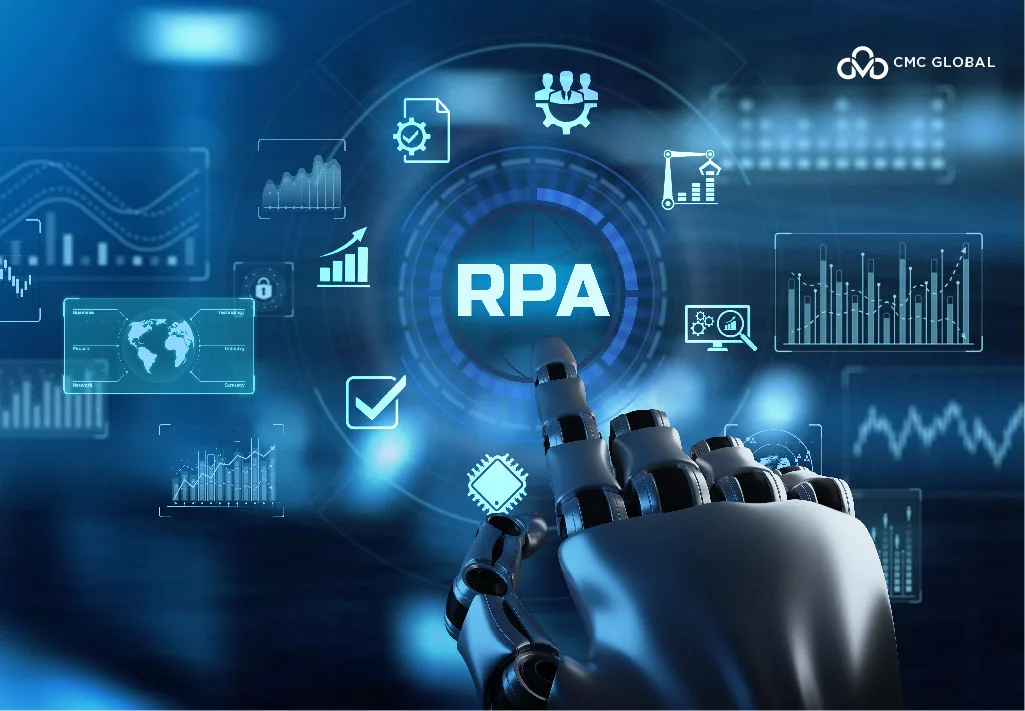As robotic process automation, commonly known as RPA has been all the rage these recent years, many enterprises are making their bold moves toward this trend. Now, RPA developer skills are among the most valuable ones to have on any resume, as RPA enables software in the form of management tools and bots to handle repetitive and high-volume tasks for human workers. And to do so, RPA developer skills need to be more than just coding. They have to understand the business side to judge both technical and business automation.
Of course, finding a team full of experts with adequate expertise and experience is what most organizations expect, but that is too good to be true. However, you can always build up a team with the below skills to ensure success with any enterprise RPA initiatives.
1. Coding skills

The first thing to mention when it comes to RPA developer skills is coding. The Microsoft .NET Framework is of great popularity in the RPA platform, with Visual Basic .NET (VB.NET) being the primary programming language used by several RPA developers to access Microsoft’s library of prebuilt methods. This helps them process the entirety of data types that flow through an RPA solution. So, it is widely known that the highest desirable skill of an RPA developer is Visual Basic for Applications language to allow Excel and other Microsoft Office applications tasks, even though many other platforms provide out-of-the-box, low-code functionality.
Another coding language that RPA developers should know, according to Tony Abel, RPA Practice Leader at Protiviti, is SQL. Data SQL is believed to be of vital importance for database integration, which is routine in RPA. Other programming languages that are highly appreciated are HTML, CSS, Python, and JavaScript. Especially experience with Python helps RPA developers write custom codes and be able to access libraries to expand RPA functionality.
2. Knowledge of the technology environment

An excellent RPA developer is one with the ability to bring code and ideas to life and interface with any critical applications and devices. Your average developers may not be able to do this, but you need a leader who can.
As RPA requires integration with multiple enterprise systems, businesses need to hire a manager who thoroughly understands the organization’s internal systems.
3. Business process knowledge

Any project, not limited to RPA only, needs professionals who understand the client’s business, their working processes, and the requirement for IT service. That means the professionals need to be able to comprehend any deviation needed to fold into the automation. And thus, this knowledge will help them determine whether a process is good enough for RPA or other platforms of automation.
According to Seth Robinson, senior director of technology analysis at CompTIA, an association whose aim is to oversee and issue professional IT certifications, familiarity with popular methodologies such as Six Sigma or Lean is one of the most desirable RPA developer skills one company might be looking for.
4. Process mapping skills
A senior at Mitchell Martin said in his speech that he needs RPA developers with good architectural skills. This means the developers must be able to distill processes down to the most basic parts, track each part’s movement as well as map out the decision logic through a software system.
A developer who wants to master this architectural skill needs to be familiar with process mining software. This is used to analyze the data and logs created during several processes as well as identify potential bottlenecks. What is more, knowing how to interview other business-side workers properly is crucial, too. It helps them understand the precise activities that they perform to make up a larger business process.
5. Management capabilities changes

Any update in RPA can cause unwanted consequences, thus, proficiency in technical change management is critical. It is true that you do not need the most advanced developer for an RPA project, but you need one who clearly understands how and why a small change can make an impacted program designed to automate tasks.
After seeing the looming factor, the right RPA developer can make the right decision on what to update in RPA bots in response to those current or upcoming changes.
6. Data analytics experience

A noticeable name in the financial planning and investment industry, Flaharty considers data analytics as one of its top RPA developer skills to have. The requirement roots from the core value or RPA technology as it transforms data sets and process knowledge into a final and complete set of defined rules used in task organization and automation.
This requirement is also found in several large firms, including CompTIA. They also want their RPA developer to have Math skills, probability particularly. Probability plays a huge part in handling any automation deployment involving machine learning or AI components. Other math-related skills, such as good knowledge of variables, arrays, and dictionaries, are highly recommended.
7. RPA platforms Experience

Experience is a no-brainer and one of the most sought-after RPA developer skills in any Job Description you come across. Not only RPA Outsourcing service providers but big firms with their IT departments also appreciate developers who are experienced in RPA tools such as Softomotive, UiPath, Automation Anywhere, etc.
Coding is a big part of the software development process, yet many hiring managers prefer experiences with RPA platforms over programming language expertise. This is because these said platforms have a low-code model and, yet, do not require extensive coding skills to get everything done.
8. API Integrations
Developers do not have to be the most adept at creating automation, while advanced XML and XSD knowledge is a big plus. And if you are experienced in REST API and SoapUI? IT recruiters must be looking for you.Â
In most cases, integration in RPA bots happens on the UI layer of the system, but sometimes, there are API requests. Since API is a critical difference for any project, the experiences in API integration when this situation arises are highly appreciated.
CMC Global‘s RPA capability
Considering Robotic Process Automation is an advanced-level platform that offers unique technology-based services and many benefits to your business processes.
So, we hope that this shortlist of Top RPA service providers in the industry can serve you well. And if you have ever considered a service with reasonable prices, a large pool of Certified Experts, and agile service, CMC Global has a lot to offer.
- We don’t have our own RPA solutions; however, we have a partnership with RPA solution providers and offer game-changing solutions to companies.
- CMC Global has 10 RPA Automation Anywhere certificates, proving our capacity to deploy automation projects.
- Our clients can leverage operational costs and save up to 70% of personnel expenses.
Outsourcing RPA service from a third party can create a hassle-free and effective model for businesses to grow without having to deal with the complexities of automation. RPA is truly a great idea for optimizing office resources, explore with us to discover your opportunities, and more!




